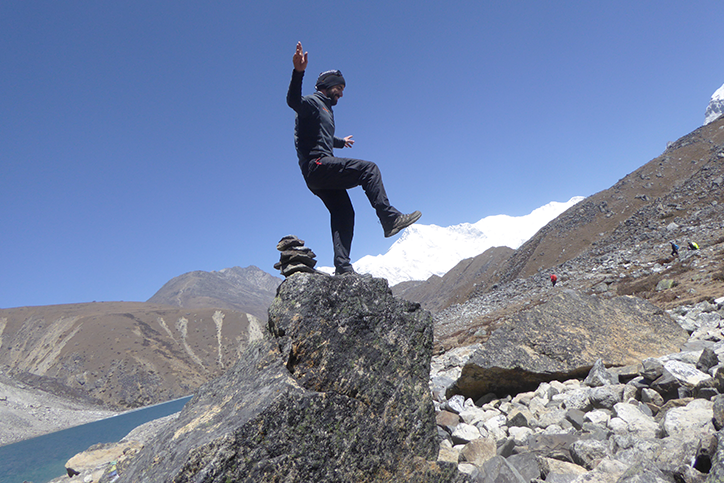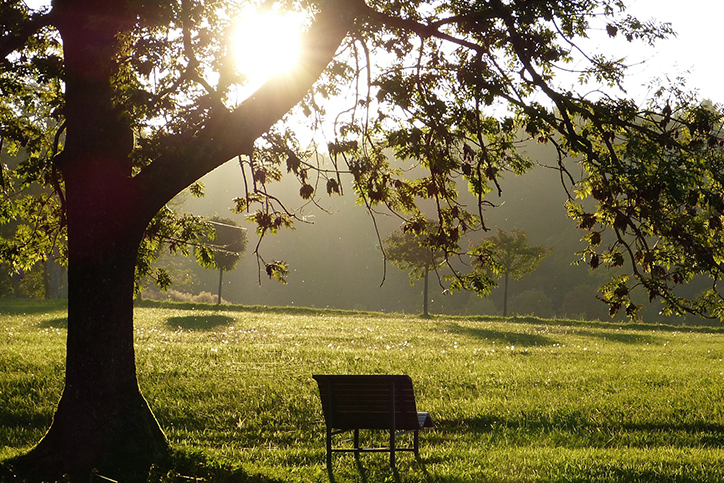There are many physical and mental benefits of spending time outdoors or living closer to nature. It’s good for the mind, body, and soul! As technology and screen time become a greater part of daily life, people are spending less time outside, and more time online. The physiological benefits of getting outside more frequently have been proven, and yet it is up to all of us to get ourselves and our families out of the house to reconnect with nature. Here’s why!

WHAT IS BIOPHILIA HYPOTHESIS?
Lately, people have been looking into the effects of nature on the human mind and body. We have learned that human beings instinctively have a need to connect with nature. Biologist E.O. Wilson coined this term, Biophilia. He defines this as ‘the urge to affiliate with other forms of life’ which comes from our evolution from nature.
Studies into Biophilia show that more time spent outdoors reduces the symptoms of anxiety and depression, lowers blood pressure and heart rate and increases overall happiness! Other hypotheses of Biophilia include that when people increase their exposure to natural surroundings, they experience higher functioning cognitive systems, sharper senses, balanced emotions and better performing immune systems.
David Strayer, a psychologist at Utah University is studying the impact of nature exposure to our prefrontal cortex, which is highly important in decision making, planning, attention, our personalities, social behaviors and even our will to live. Can you imagine what an impact this has on our overall lives?
REDUCES ANXIETY & DEPRESSION
Spending time in nature can drastically improve ability to cope with stress,anxiety and depression.
Stanford conducted a study to find out if nature has an effect on depression. They found that walking in nature can lower the risk of depression and that even just a 90-minute walk in a natural surrounding (as opposed to an urban setting) led to a decrease in activity in the region of the brain that is responsible for depression.
Research has shown that individuals who live in the city are 20% at higher risk for anxiety-related disorders, and are a 40% higher risk for mood disorders as compared to people who live in close proximity to nature.
VIEWS FROM HOSPITAL ROOMS HAVE AN EFFECT ON THE HEALING PROCESS
It is well established that physical environment has a major impact on our lives, and so it makes sense that a positive and comforting environment in hospitals and care centers would assist with the healing and therapeutic process.
A well-known study by Roger S. Ulrich showed the effects of having natural views from hospital beds on patients. What they found was that patients who had views of nature from their hospital bed tended to heal faster. Their level of pain was lower than those who had no views, they had fewer complications and a better overall demeanor. Meaning, shorter hospital visits!

DAILY DOSE OF SUNLIGHT – VITAMIN D
Most know that sunlight is the best source of vitamin D, and that too much sun exposure can lead to skin cancer. But, did you know it can also help with cancer prevention?
Researchers have found that certain cancers are found more commonly in places that experience less daylight. Epidemiologic studies also show that vitamin D helps fight and prevent diseases such as osteoporosis, heart attacks, and strokes.
Vitamin D triggers the release of serotonin which helps to boost overall mood. Lack of sunlight can lead to SAD (Seasonal Affective Disorder), commonly seen in colder climates where spending time outdoors is more avoided.
As little as fifteen minutes of sunlight a few times a week is enough to get your vitamin D intake and feel the mood-enhancing effect of the sun!
LOWER MORTALITY RATES IN WOMEN
In the United States, a study was conducted on the mortality rates of women living surrounded by vegetation as compared to those who live surrounded by less vegetation. The research was done over eight years and showed that women who lived amongst more vegetation had a 12% lower early mortality rate.
That could be, in part, to economic factors around the community studied, but lower levels of depression were also recorded and they had generally better mental health, leading them to seek more social engagement and become more active. The women who lived in less vegetated areas showed higher rates of cancer and respiratory disease.
BEING OUTDOORS IMPROVES BASIC LIFE SKILLS
Besides the fact that spending more time outdoors leads to a more active and balanced healthy lifestyle, it can also improve our overall wellness, creativity and academics. Concentration and motor coordination are improved, and it has even been seen that ADD symptoms improve. Providing children with ADD an outlet to alleviate stress and hyperactivity is a natural calming method.
Further research has been conducted into the effects of learning outside for children and increasing their outdoor playtime. Kids today are absorbed in the technological world and spending less time outdoors than previous generations.
A 2010 study conducted on the lives of 8 to 18-year olds by the Kaiser Family Foundation showed that children who had heavy media usage performed significantly worse at school than those who spent less time using media. Ensuring our children spend time outdoors and having schools consider outdoor education can, therefore, have significant positive effects on the education and development of our children.
Getting back to nature is simple and affordable. Something that is beneficial in so many ways and that is so accessible should be utilized at every opportunity. So put down that phone, go for a hike, or take the family camping, but whatever you do – make getting back to nature a priority in your life, because there is no life without nature and no nature without life. With so many positive effects of nature on our physical and mental well-being, why are you still inside reading this article?!